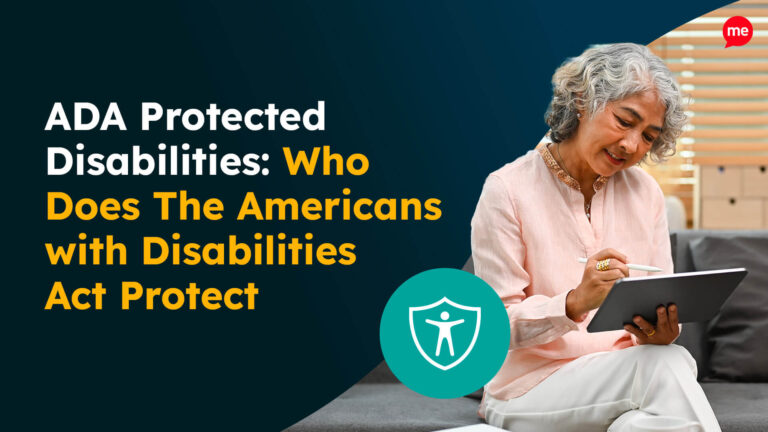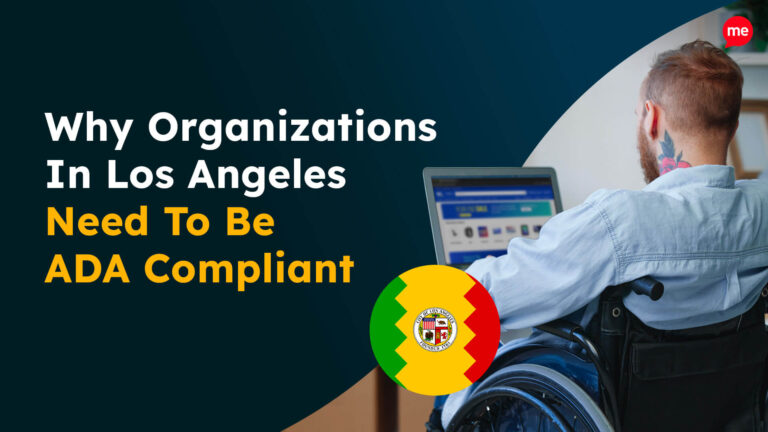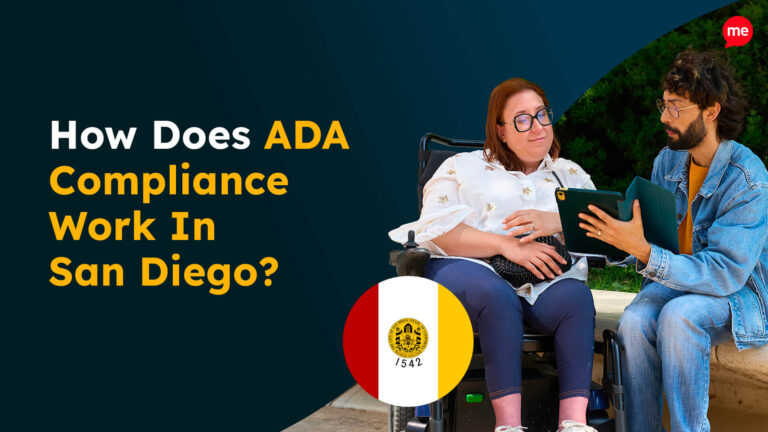Get A Free ADA Compliance Audit Of Your Website
Download NowIn an age where the internet serves as an essential gateway to employment opportunities, educational resources, transportation services, and participation in public life, equal access for individuals with disabilities is essential.
Federal web accessibility legislation already exists to ensure those with disabilities are not excluded online. However, many states have enacted their own digital accessibility laws to further equality efforts. Kansas is one of them.
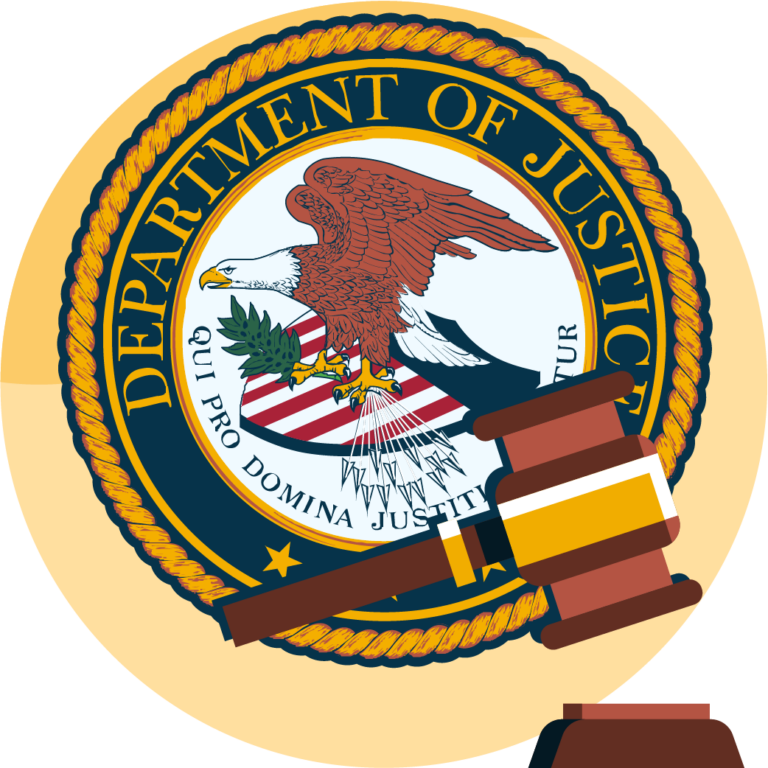
Web Accessibility Laws in Kansas
Kansas was among the first states to introduce state-specific digital accessibility best practices. However, while equal access for everyone is the ultimate goal, state legislators are also dedicated to ensuring that Kansas business owners are not unfairly targeted for simple oversights. Thus, in the modern-day climate where ‘accessibility testers’ can often work the system by filing accessibility lawsuits for financial gain, the Sunflower State is the first to have introduced a specific act to deter plaintiffs from filing frivolous cases.
Let’s take a comprehensive look at the federal legislature that all website owners and administrators need to be aware of, then dive into Kansas web accessibility laws to see how they interplay.
The Americans With Disabilities Act (ADA)
Enacted in 1990, the Americans with Disabilities Act (ADA) is one of the most significant pieces of civil rights legislation in the United States. It prohibits discrimination against individuals with disabilities in various areas of public life – including digital spaces, which are recognized as extensions of physical environments.
Key sections of the ADA that relate specifically to web accessibility are as follows:
- ADA Title I: Fair Employment – Federal employees with disabilities must have equal access to employment opportunities and employment-related information.
- ADA Title II: Public Services and Programs – State and local entities must make digital information equally available to disabled citizens.
- ADA Title III: Public-facing Entities – Any organization with a public-facing website must make goods, services, facilities, and accommodations accessible to everyone.
Section 508
Section 508 of the Rehabilitation Act mandates that all federal agencies ensure equitable accessibility to electronic and information technology (EIT). More specifically, it requires government offices to procure, develop, maintain, and use information and communication technology that is accessible to individuals with disabilities, including:
- Websites
- Software applications
- Electronic documents
- Multimedia
- Telecommunications products
The primary goals are to ensure that individuals with disabilities, whether federal employees or members of the public, have equal access to digital resources and services.

ITEC Policy 1210 Revision 3 – Information and Communication Technology Accessibility Standards
ITEC Policy 1210 Revision 3, also known as the Information and Communication Technology Accessibility Standards, was enacted in 2000 and later revised in 2006, 2009, and 2018. The standards apply to all websites, software, and applications offered by state government departments and offices, as well as education institutions.
Under Kansas accessibility standards, all new websites must comply with ADA and Section 508 criteria in line with the Web Content Accessibility Guidelines (WCAG), version 2.0, level AA (more about WCAG coming up later!). The list of criteria this covers includes, but is not limited to:
- Graphics and images
- Color contrasts
- Multimedia sounds
- Alt tags
- Forms
- Keyboard control
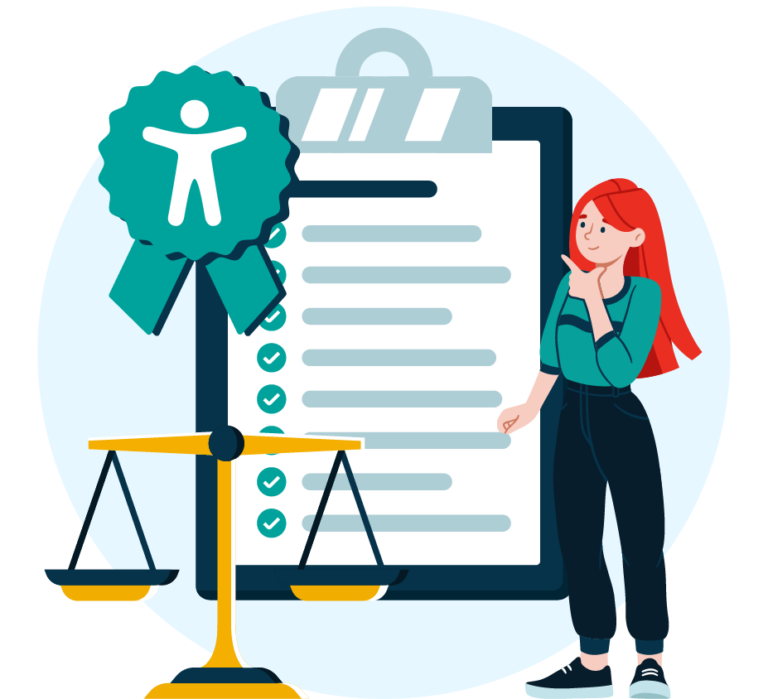
The Act Against Abusive Website Access Litigation
Passed in 2023, the Act Against Abusive Website Access Litigation is designed to prevent individuals from filing blanket ‘copy and paste’ lawsuits against multiple companies based on ADA criteria. It allows businesses to file claims against plaintiffs and their attorneys to recover defense fees and seek punitive damages.
The Act adopts a ‘totality of the circumstances’ approach to determine whether a lawsuit qualifies as abusive, taking into account the following considerations:
- The number of similar actions filed by the same plaintiff.
- The size of the defending company and the available resources it has to correct the alleged violation.
- Whether the plaintiff (and/or their attorney) is a Kansas resident.
- The nature and reasonability of settlement discussions.
Stay ahead of the game when it comes to Digital Accessibility laws and compliance in the United States. Learn about all the different federal and state-level regulations, see real examples of web accessibility lawsuits in different regions and discover a 7-step action plan for building accessible websites.
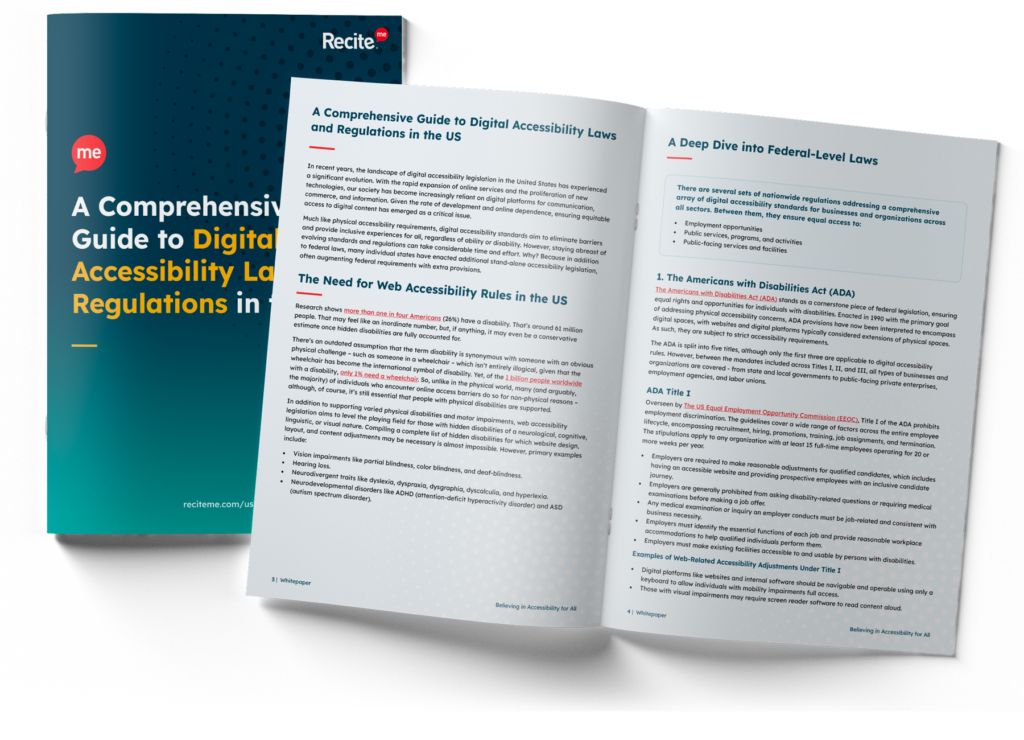
Which Businesses Do Kansas Web Accessibility Laws Apply To?
The majority of federal and state web accessibility legislation applies primarily to government agencies and educational institutions. However, it’s essential to note that any private company within the supply chain of a federal or state agency – like third-party contractors and funding recipients, for example – must also comply with Section 508 and Kansas’s Information and Communication Technology Accessibility Standards.
Additionally, because ADA Title III applies to any public-facing business, any organization with a website servicing Kansas residents must have a compliant website to avoid legal risk. This includes a comprehensive list of companies across service industry sectors, such as:
- Online retailers
- Transport providers
- Restaurants
- Shops
- Theaters
- Hotels
Consequences of non-compliance
Failing to prioritize web accessibility can have significant repercussions from a range of legal, financial, and reputational perspectives:
- Fines – ADA and Section 508 breaches start at $55,000 for first violations, escalating to $110,000 for subsequent breaches.
- Legal action – Lawsuits can be filed by either private citizens or advocacy groups, and the cost of attorney fees and settlements can be substantial.
- Withdrawal of funding – Third-party service providers and organizations receiving government funding risk having their contracts revoked for non-compliance.
- Reputational damage – Negative publicity surrounding accessibility issues can tarnish a business’s brand image and erode customer trust, leading to a sharp decrease in market share and revenue.
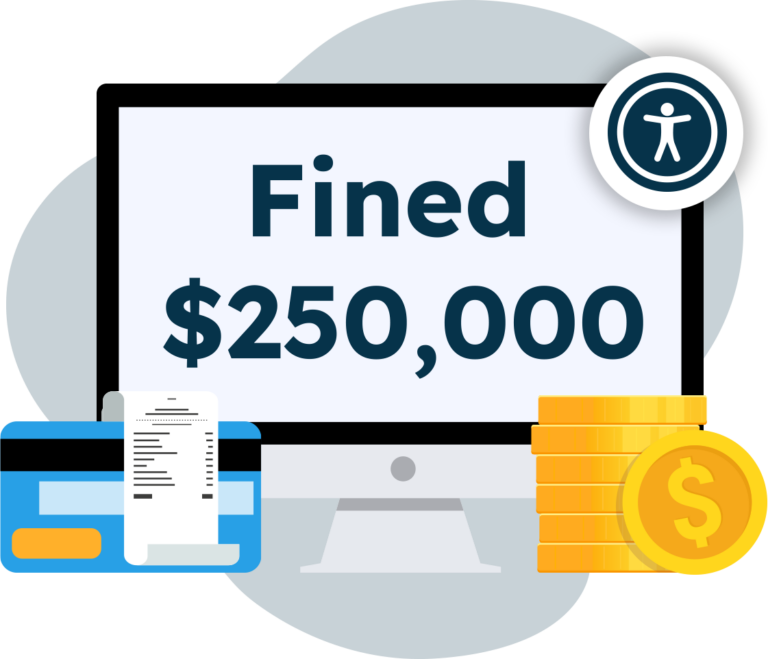
Digital Accessibility Lawsuits in Kansas
While the Act Against Abusive Website Access Litigation deters plaintiffs from filing lawsuits without substantiated evidence, businesses can still be taken to court for legitimate violations. Research shows that 98% of US webpages are not accessible to the disability community from a legal perspective, meaning most organizations still have a significant way to go if they’re to avoid legitimate legal risk.
Of course, not all filings proceed to trial. Some are dismissed, while others may be voluntarily withdrawn in favor of a closed-record out-of-court settlement. However, the escalating number of digital accessibility lawsuits coupled with the threat of negative PR and expensive legal bills should prompt organizations in every sector to carefully consider their approach.
Records of publicly available Kansas web accessibility cases are via the state’s online portal. However, to save you some legwork, we’ve compiled this list of the most commonly cited ADA Title III violations:
- Lack of keyboard navigation
- Unlabeled dropdown menus
- Insufficient color contrast
- Incompatibility with screen reader software.
- Inaccessible forms
- Empty button elements
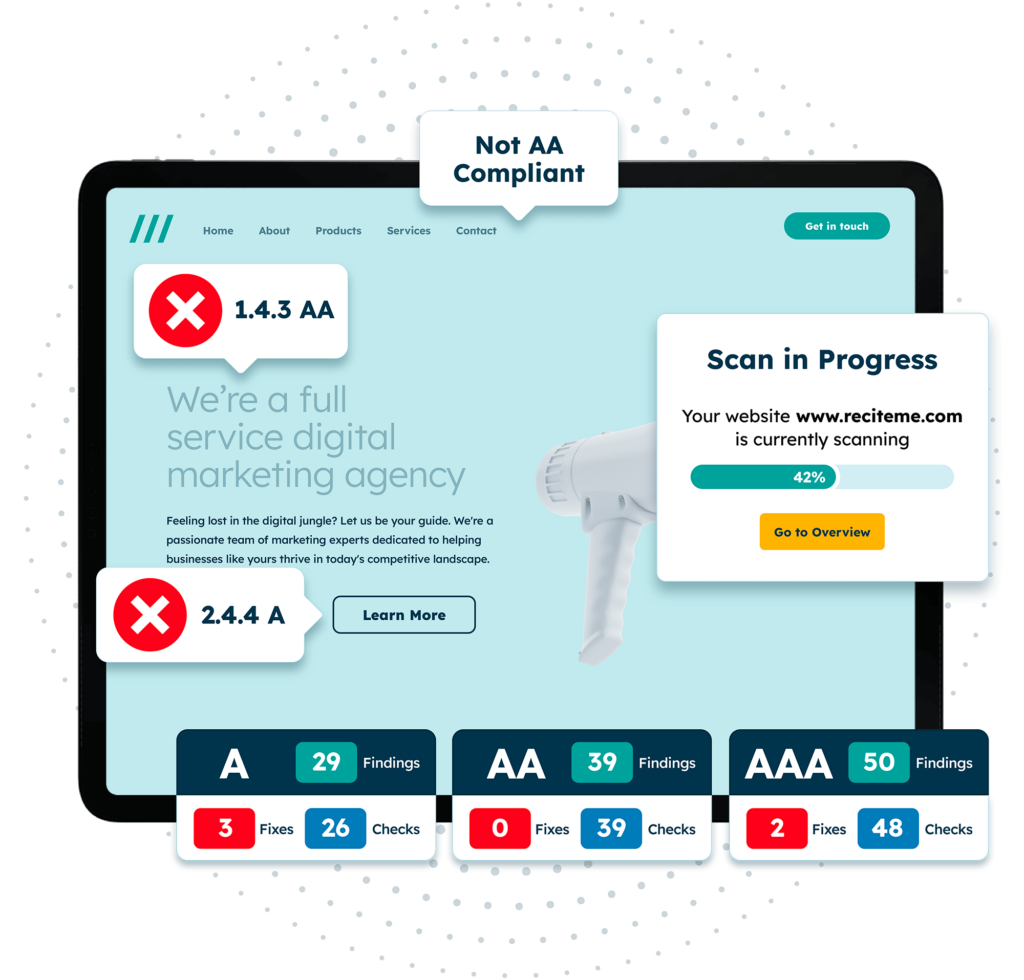
Free Accessibility Check of your Website
Finding accessibility issues is now easier than ever. Recite Me offers a free automated scan of your website’s homepage to highlight non-compliance. You’ll get recommendations on how to fix them, helping to improve your accessibility score.
The Importance of WCAG Compliance
Both federal and state legislation use Web Content Accessibility Guidelines (WCAG) as a base for ensuring a standardized framework for their criteria. So, familiarization with WCAGs ‘POUR principles’ is essential:
- P = Perceivable: Information and user interface components must be presented in ways that users can perceive.
- O = Operable: User interface components and navigation must be operable by all users, including those with disabilities.
- U = Understandable: Information and the operation of the user interface must be understandable to users.
- R = Robust: Content must be robust enough to be interpreted by a wide range of user agents, including assistive technologies.
WCAG criteria are organized into three conformance levels (A, AA, and AAA), spanning varying degrees of accessibility. Current Kansas web accessibility legislation requires level AA compliance with WCAG version 2.0, which was published in 2008. However, aiming to meet AA criteria for the more recent versions, WCAG 2.1 and WCAG 2.2, is recommended for any organization looking to bring website accessibility criteria up to current-day standards and avoid unnecessary risk.
How to Make Your Website Compliant with Kansas Web Accessibility Laws
Embracing web accessibility isn’t just about ticking boxes. It’s a commitment to inclusivity and ensuring equal access for all. But, how do organizations go about getting started?
Enter Recite Me’s suite of accessibility-on-demand tools. By blending compliance with usability, Recite Me software helps organizations meet legal standards while also enhancing individual user experiences.
The Recite Me Accessibility Checker
The Recite Me Accessibility Checker guides organizations through the compliance process by:
- Running 396 separate scans
- Identifying non-compliance issues
- Generating prioritized fix queues based on WCAG criteria.
Schedule a free demonstration or run a free scan today!
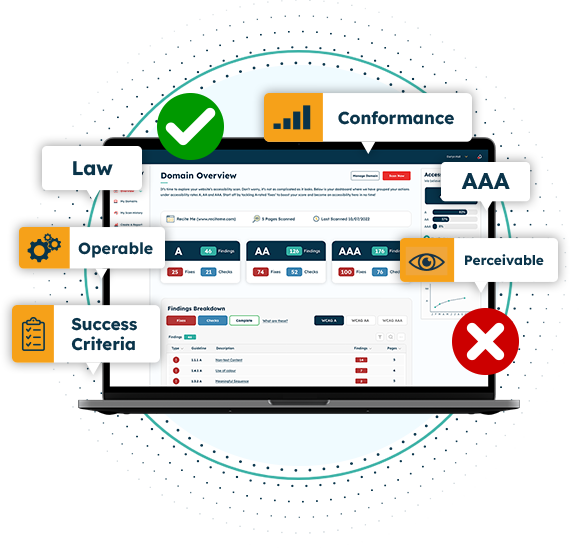
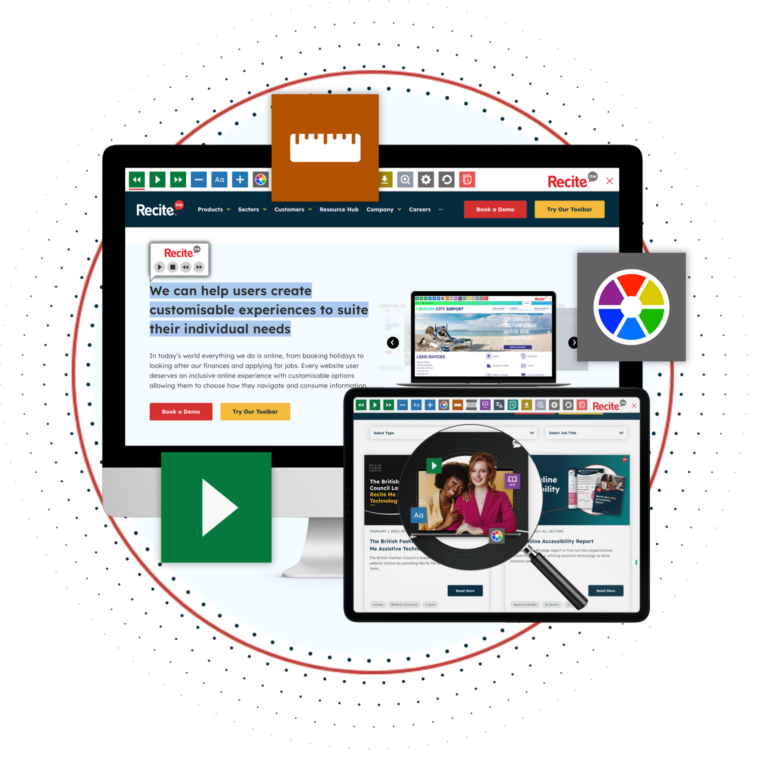
The Recite Me Toolbar
The Recite Me Toolbar takes inclusivity to the next level, allowing users to customize their browsing experience based on individual preferences by adjusting:
- Font setting
- Color contrast
- Display language
- PDF documents
- And more
Schedule a free demonstration, or try the toolbar today!

